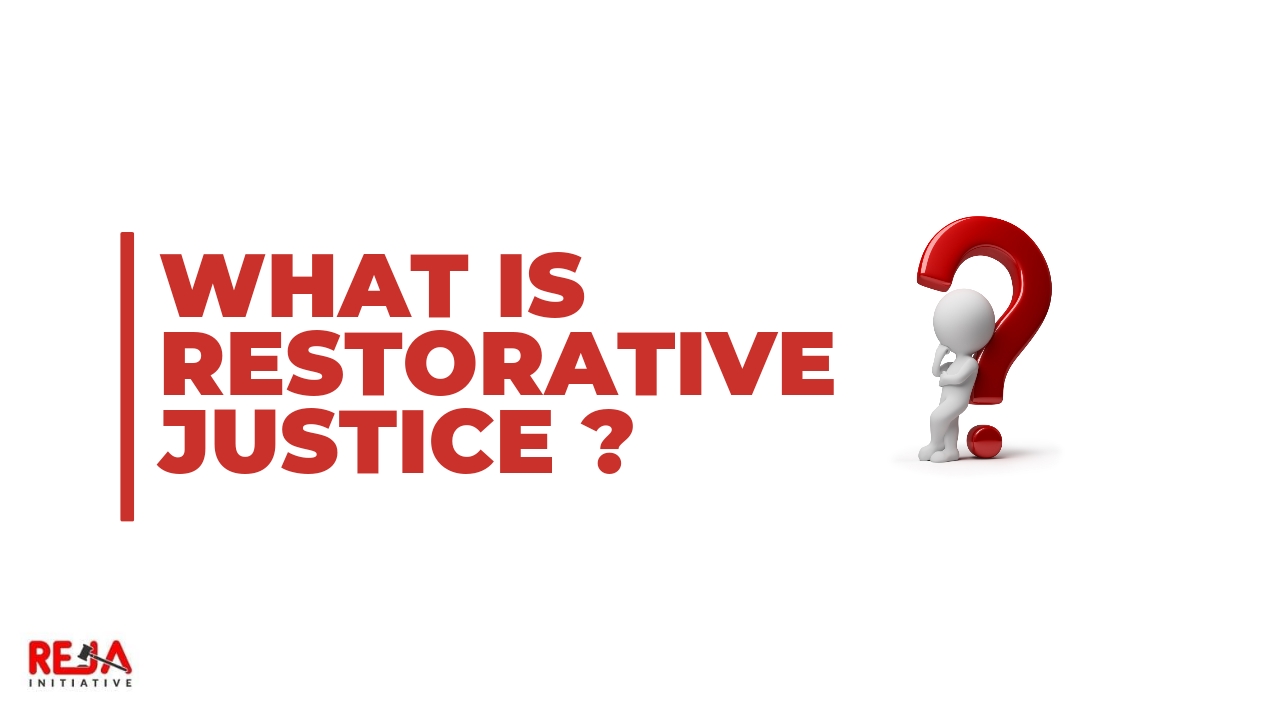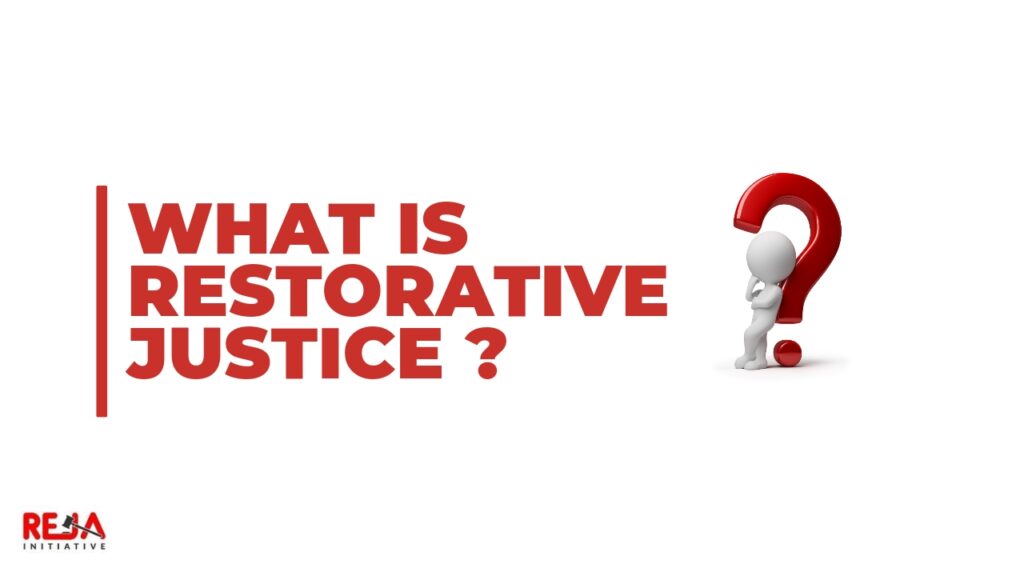
Restorative Justice is an alternative framework for viewing crime that seeks to bring together the parties involved and the community to repair the harm caused.
It views crime firstly as a violation of human relationships and secondly as a violation of the law. For victims, it gives them a voice and puts into account their needs, wants and healing process while for the offenders, it holds them accountable to the Victim and allows them to repair the harm caused, which promotes safer communities.
There is no common definition of Restorative Justice. However, in the words of Howard Zehr “Restorative Justice is a process to involve, to the extent possible, those who have a stake in a specific offence and to collectively identify and address harms, needs, and obligations, to heal and put things as right as possible”

A Restorative Justice process seeks to ask the following questions:
What happened?
Who was affected and how?
How do we repair the harm committed?
How do we prevent re-offending?
These questions, as basic as they appear, appeal to the core of our humanity and drive the process of restoration and healing for all parties. Victims of Crime sometimes want things which the current system may not provide, like inclusion in the process, and opportunities to ask questions and convey their pain. To put it in simple terms, Restorative Justice deals with Truth-finding as opposed to fact-finding.
When a crime is committed, rather than focusing on punishment alone, Restorative Justice seeks to look at the events that led to the commission of the crime, the relationship affected and a way to repair the harm caused.
The story of Fernando and Elizabeth culled from the Forgiveness Project clearly defines what Restorative Justice is.
In 2017, Fernando and Elizabeth’s 24-year-old daughter, Maria, was killed in a fatal car crash. Maria’s friend, Nick, was later convicted of causing death by dangerous driving.
Maria was completing her final year at Brighton University when the accident happened. She had gone out for dinner with a friend from a church where she was a leader and a singer in the church band. Because she had drunk wine, she asked her friend Nick to drive her car and take her home. According to Fernando, her father, it was one thing that had caused him the most pain because a year before Maria died he had bought her the car for her birthday. He had wanted to make her life easier.
It turned out Nick was not insured to drive the car, and he was speeding 100 miles an hour when they crashed.
In the early days, Fernando had blamed himself for buying Maria a car. He also blamed Nick. In his words, “I wanted to get out a machete and kill him. These revenge fantasies initially got me through, but I also knew I didn’t want to end up a bitter man,”
Elizabeth, Maria’s mum, attended all the police interviews and court appearances along with their son Joshua. She did a lot of reading and investigating around the case and wrote to the prosecuting lawyer and the judge asking for leniency. According to her “I saw no point in making a criminal out of Nick. A far more satisfactory outcome would have been for him to retake his driving test, attend a speed awareness course… and maybe have some counselling sessions for his grieving. Then he would have been able to finish university”.
The court case lasted just one afternoon. Nick was given a sentence of seven and a half years of which he was to serve half.
The criminal justice system incarcerated Nick, without a thought to the needs, wants and healing process of the Jimenez nor the obvious acceptance of guilt and remorse faced by Nick. Many times we resolve cases yearning for the use of restorative justice in a less restorative manner. In our society, people are incarcerated over petty offences such as shoplifting, pickpockets, minor assault, traffic offences and a host of others. These persons end up adding to the growing number of people in our correctional centres, a situation which can be remedied if Restorative processes are used.
Our current criminal justice system does a reasonably effective job, and there would always be the need for a formal system to deal with cases of contested innocence. However, because it limits “justice” to applying the Law, reliance on a technicality, assessing blame and administering punishment, something vital is left out of the picture. That something is the need to restore and redress the damage done to people. The Criminal Justice system has become a profoundly successful instrument of punishment but it fails utterly as an instrument of healing and reconciliation and this is where Restorative Justice has a role to play.